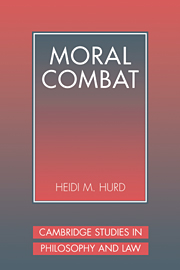Book contents
- Frontmatter
- Contents
- Preface
- Acknowledgments
- Part I The Dilemma of Legal Perspectivalism
- Part II Sources of the Dilemma of Legal Perspectivalism
- Part III The Moral Case for Legal Perspectivalism
- Part IV The Moral Case Against Legal Perspectivalism
- Part V Resolving the Dilemma of Legal Perspectivalism
- Bibliography
- Index
Part V - Resolving the Dilemma of Legal Perspectivalism
Published online by Cambridge University Press: 05 November 2011
- Frontmatter
- Contents
- Preface
- Acknowledgments
- Part I The Dilemma of Legal Perspectivalism
- Part II Sources of the Dilemma of Legal Perspectivalism
- Part III The Moral Case for Legal Perspectivalism
- Part IV The Moral Case Against Legal Perspectivalism
- Part V Resolving the Dilemma of Legal Perspectivalism
- Bibliography
- Index
Summary
In the previous part, we explored reasons to think that our best moral theory – be it consequentialist or deontological – would not impose role-relative duties on actors in a manner that would pit them against one another in moral combat. If this is the case, then we have good reason to believe that the justified cannot be justifiably punished. That is, we have grounds for concluding that the morality of a citizen's disobedience makes right the citizen's acquittal, and the morality of acquitting the citizen makes right the refusal of a system designer to sanction the citizen's judge.
But if, by virtue of the analysis in the previous part, we must consider the principle of weak retributivism inviolate, then the dilemma of legal perspectivalism can be solved only by subjugating our commitments to the rule of law and democracy to that principle. It remains for us to explore whether such a solution can be viably advanced. If it cannot, we will be forced to conclude that our jurisprudence is irreconcilably conflicted: It both does not permit the punishment of the innocent and depends on it as a means of protecting our most basic systemic values.
- Type
- Chapter
- Information
- Moral CombatThe Dilemma of Legal Perspectivalism, pp. 295 - 296Publisher: Cambridge University PressPrint publication year: 1999



